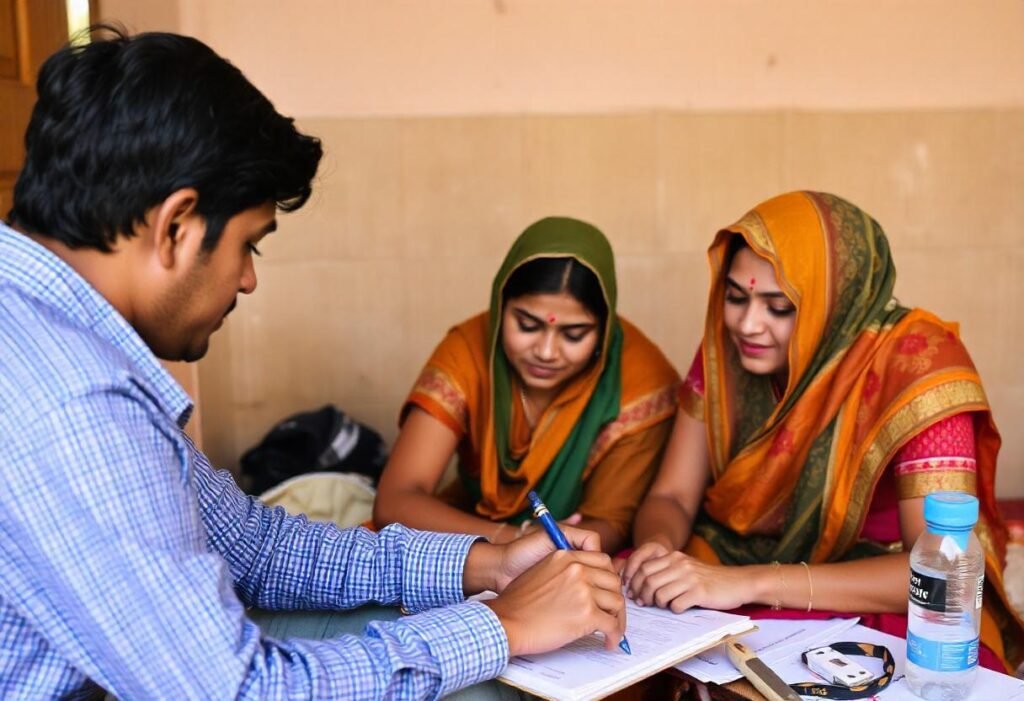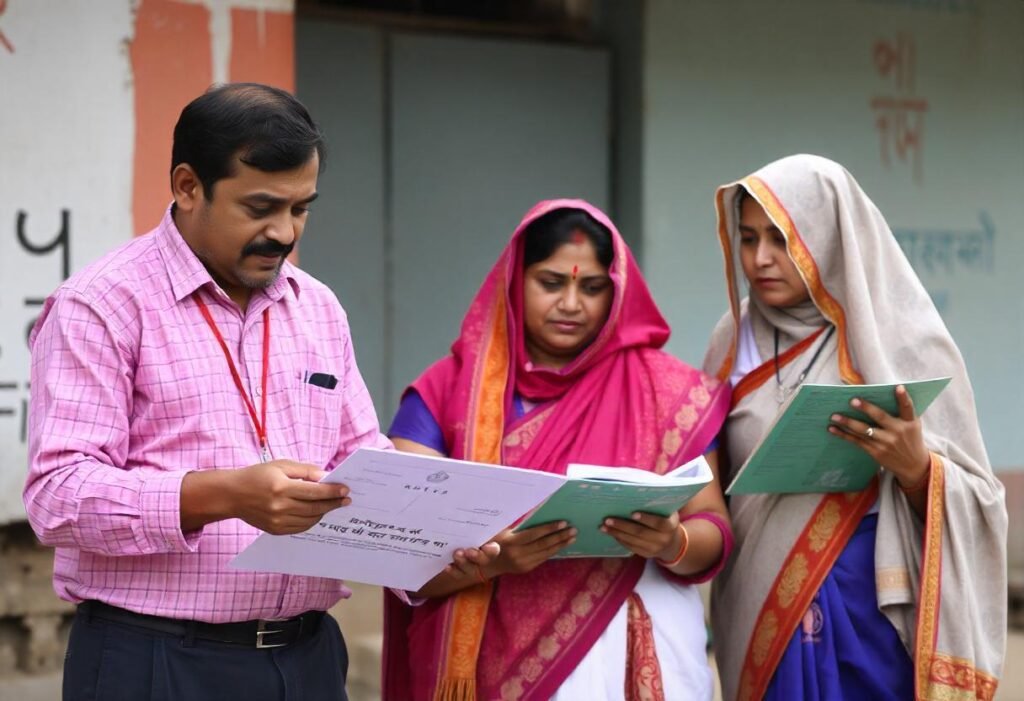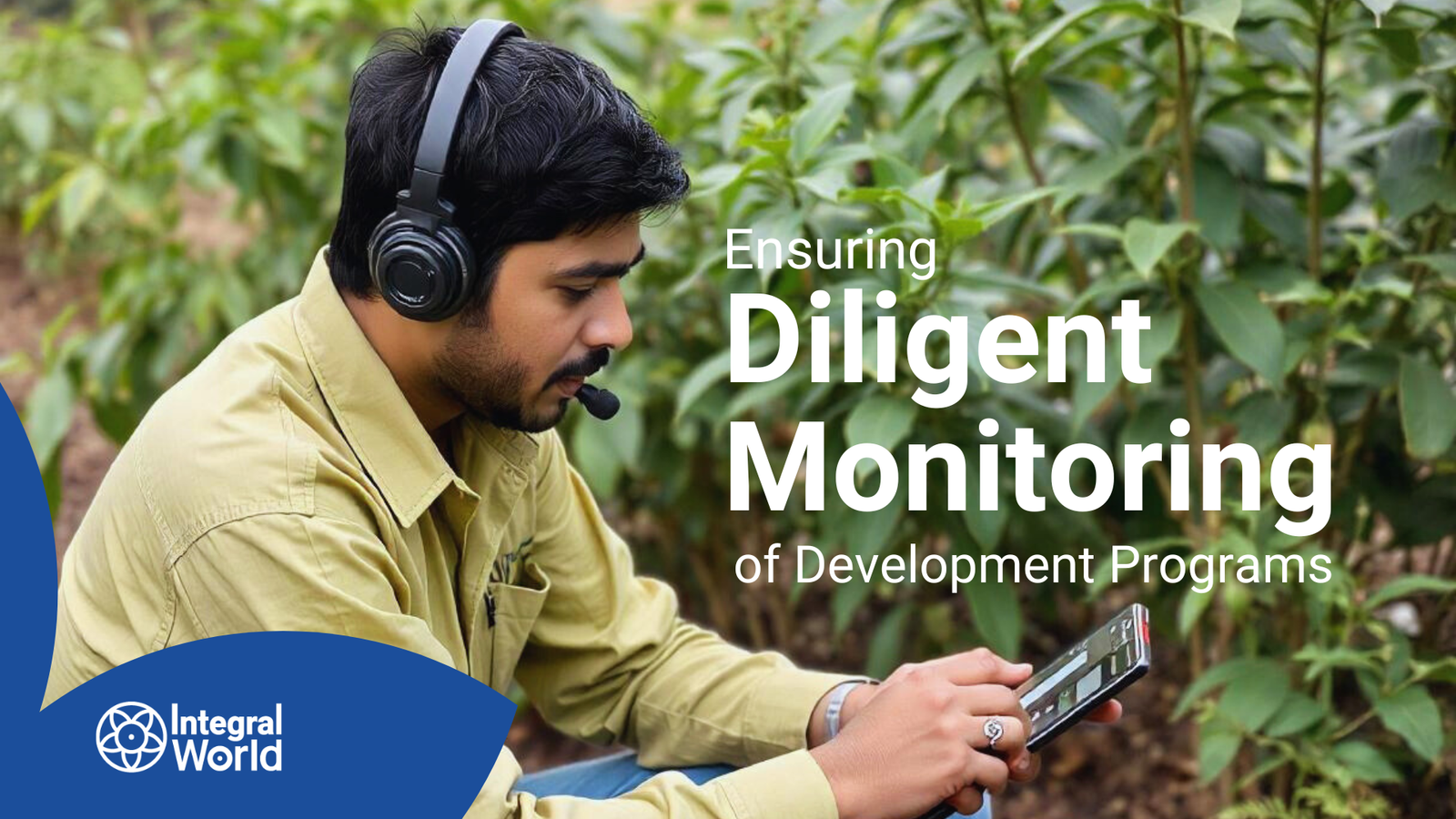Sustainable development programs only reach their potential through effective execution and careful monitoring but not just from their design or objectives. Through constant vigilance, diligent monitoring ensures program interventions are on track as well as responsive to communities’ needs.
For Integral World, a non-profit organisation committed to sustainable and holistic development, monitoring plays a critical role in driving progress and empowering communities.
The Importance of Diligent Monitoring
- Monitoring is fundamental for program management success. It means regularly tracking progress, appraising performance, adjusting as appropriate to ensure that goals are met by the project. Some benefits associated with diligent monitoring include:
- Enabling Accountability: Monitoring enables evaluation of whether resources have been efficiently used against predefined metrics and goals by ensuring alignment between program activities and intended objectives.
- Early Warning Signs: Regular monitoring allows identification of issues that may challenge successful implementation at an early stage thus proactive measures can be taken before such issues escalate.
- Facilitates Learning and Improvement: Organisations get vital information through monitoring which helps them understand what does not work while they also continuously improve based on feedback and evidence.
- Inculcate Trustworthiness: An organisation’s credibility is boosted when it employs transparent ways in which it monitors its operations thereby implying commitment towards reporting honestly about achievement of set goals.
Example: The Global Fund
The Global Fund has employed this kind of vigilant supervision towards making sure its developmental initiatives bear fruit. The Global Fund uses comprehensive systems for monitoring and evaluating different investments made in health care programs so that strategies are adjusted when needed based on data analysis meant to improve results as well as promote accountability within the system.

Strategic Workshops and Training Programs
Strategic planning workshops as well as training programs form a bedrock of any organisation’s ability to oversee diligently. They give teams the necessary tools, knowledge and competencies for effective monitoring and evaluation in respect to development programs. How do these initiatives drive progress while empowering communities?
Capacity Building
Workshops and training programs aim at improving the skills of those involved in monitoring activities. They cover essential skills such as data collection, analysis, reporting, use of monitoring tools among others.
Example: The World Bank
The World Bank usually organises workshops to improve its partners’ capacity on monitoring and evaluation. These include topics like results based management as well as impact assessment where organisations are empowered to keep better track and provide better information about their development efforts.
Tip: Regular training sessions will familiarise your team with modern monitoring techniques and best practices.
Enhancing Data Management
Monitoring must have accurate data collection systems; a training program may involve them on how this should be done. This can involve using digital tools or platforms for tracking or reporting among other aspects of data management.
Example: PATH
To improve its own set-up, PATH, a global health organisation uses data management training. In order to enhance the accuracy of the data collected during an intervention process, PATH incorporates technologically advanced instruments while also ensuring there is a prompt decision-making process whenever need arises.
Tip: This tip is about using data management technologies to streamline the collection and analysis of data for your monitoring efforts.
Developing Monitoring Frameworks
It is often through workshops that robust monitoring frameworks are developed, which involve clear indicators, measurement tools and reporting mechanisms. These frameworks offer systematic ways of tracking progress as well as evaluating program performance.
Fostering a Culture of Learning
Organizations can encourage a culture of learning through training programs. These programs aid organisations in adapting their monitoring practices based on lessons from real-time experiences by emphasising continuous improvement and feedback.
Example: Oxfam
For instance, Oxfam’s training programs emphasise the importance of learning from M&E findings. They urge staff members to use insights from implementation meetings to make incremental improvements, fostering an adaptive management culture within the organization.
Tip: Encourage your team members to reflect upon the results obtained from diligent monitoring regularly, thereby using what they learnt to improve the program’s quality as well as encouraging innovations within it.

Actionable Tips for Effective Monitoring
Set Clear Objectives and Indicators
Clearly set objectives for your development programs and establish measurable indicators to actively track their progress. This helps focus the monitoring process on relevant outcomes and impacts only.
Tip: For objective setting and having indicators guiding your monitoring activities use SMART criteria (Specific, Measurable, Achievable, Relevant, Time-bound).
Implement Robust Data Collection Methods
You need reliable data collection methods that ensure the information is accurate and consistent. Use both qualitative and quantitative information to determine how your programs are doing.
Tip: Train field staff in effective data collection methods and have user friendly data collection tools that correspond to program needs.
Regularly Review and Analyze Data
Program performance can be assessed by reviewing monitoring data from time-to-time. This analysis should form the basis for decision-making, hence strategies being adjusted accordingly.
Tip: Schedule periodic meetings for reviewing data with members of the organisation to enable discussions of findings, challenges facing the implementation committee or planning on the way forward depending on the results obtained from these reviews.
Communicate Results Transparently
Stakeholders such as donors, partners and beneficiaries need to know about your monitoring results openly. Your transparent reporting will foster trustworthiness and accountability that confirms reliability of organisation activities.
Tip: Report such information using simple pictures like graphs instead of large documents filled with figures not easily understood by everyone.
Engage Stakeholders in the Monitoring Process
Monitoring involves stakeholders who have diverse perspectives as well as insights. Involving intended users/program beneficiaries, development partners, and community members makes Program Monitoring more relevant and useful.
Tip: Hold feedback sessions at which stakeholders will provide inputs into the evaluation process through focus group discussions, meetings, or workshops designed specifically for this purpose. Also consult various stakeholders through participatory workshops aimed at capturing different opinions regarding monitoring efforts.
Conclusion:
To ensure successful development programs that have positive impacts diligent monitoring is important. Strategic workshops along with training programs make it possible for organisations to improve their capacities for monitoring and developing community empowerment among others. Therefore effective monitoring fosters accountability as well transparency besides promoting continuity learning so crucial in any development endeavour.
The primary purpose of Integral World is assisting organisations to construct and implement strong surveillance systems. By the use of professional strategic workshops and capacity building programs, we hone the skills for NGOs in monitoring their progress and resolving challenges along with achieving development goals.
Contact today Integral world to find out more about our strategic workshop and training programs aimed to empower your staff members as well as promote your development goals. Let us strive together for superior monitoring standards that will make a difference in the areas where you serve humanity.


1 Comment
Simply Sseven I like the efforts you have put in this, regards for all the great content.
Comments are closed for this article!